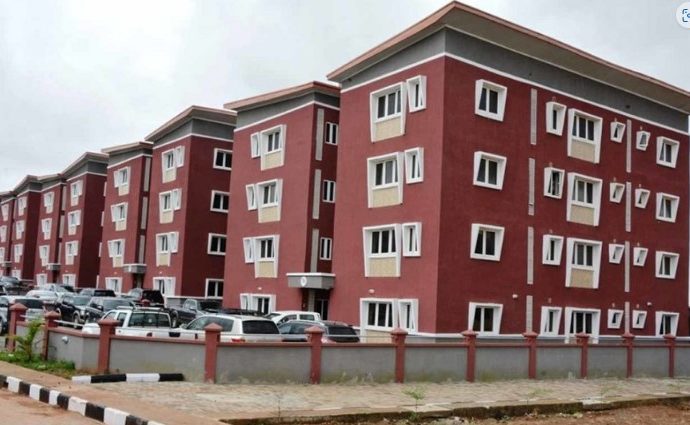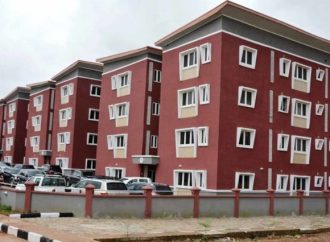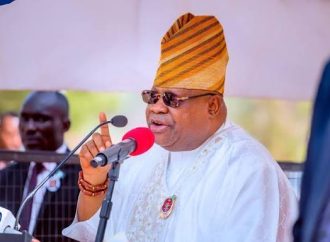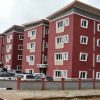Lagos Rent Surges Over 80% as Tenants Battle Housing Shortage By Newsworld The cost of renting an apartment in Lagos has skyrocketed by more than 80 percent in the past year, sparking widespread concern among residents, real estate experts, and housing advocates. From the bustling neighborhoods of Ikeja to the highbrow districts of Lekki
Lagos Rent Surges Over 80% as Tenants Battle Housing Shortage
By Newsworld

The cost of renting an apartment in Lagos has skyrocketed by more than 80 percent in the past year, sparking widespread concern among residents, real estate experts, and housing advocates. From the bustling neighborhoods of Ikeja to the highbrow districts of Lekki and Ikoyi, tenants are groaning under rising rental prices that have turned basic shelter into a luxury few can afford.
Lagos, Nigeria’s commercial nerve center and Africa’s largest city by population, is facing an unprecedented housing crisis. With an estimated population of over 22 million people and growing daily, demand for accommodation has far outstripped supply. Experts estimate that Lagos needs at least 5 million additional housing units to bridge the gap.
In areas like Surulere, Yaba, and Gbagada, rent for a two-bedroom flat that cost around ₦800,000 in 2023 now goes for between ₦1.3 million and ₦1.5 million. In Lekki, Ikate, and Ajah, the surge is even more alarming, apartments that were rented for ₦2 million last year now command between ₦3.5 million and ₦4 million.
According to a recent report by the Nigerian Institution of Estate Surveyors and Valuers (NIESV), rental prices in Lagos have increased by an average of 82 percent across most districts within 12 months. The rise, the report says, is primarily driven by inflation, high construction costs, and limited housing development.
The inflationary trend in Nigeria’s economy has worsened the housing situation. Cement prices have nearly doubled, and the cost of iron rods, paint, tiles, and other materials have surged due to the depreciation of the naira and the removal of fuel subsidy.
A developer in the Lekki area, Engr. Tunde Adedoyin, said many builders have been forced to suspend ongoing projects because of rising costs.
“We can no longer build at the same cost as last year. Cement is now over ₦10,000 per bag, diesel is expensive, and labour is also rising. If developers cannot complete projects affordably, rent will naturally increase,” he said.
The ripple effect of these costs has been transferred to tenants, leaving many families struggling to renew their rent or forced to relocate to less developed areas on the outskirts of the city.
For thousands of Lagosians, the rent surge has turned survival into a daily struggle. Many tenants now resort to cohabiting with friends, downsizing from larger apartments, or moving to satellite communities like Mowe, Ibafo, and Ikorodu, where rent is relatively cheaper.
Chidinma Umeh, a teacher who lives in Ogudu, shared her frustration:
“My landlord increased my rent from ₦900,000 to ₦1.6 million this year. I begged for more time, but he refused. I had to move with my children to a smaller apartment in Ikorodu. The transport to work is killing, but I had no choice.”
Stories like Chidinma’s are now common. Agents confirm that many tenants are defaulting on payments or abandoning apartments altogether. Some landlords, fearing loss, have resorted to demanding two years’ rent in advance, a practice that violates Lagos tenancy law but remains widespread.
The Lagos State Government has repeatedly pledged to tackle the housing deficit. Projects like LagosHOMS (Lagos Home Ownership Mortgage Scheme) and Rent-to-Own initiatives were designed to help low and middle-income earners acquire homes. However, critics argue that these programs are limited in scope and benefit only a small percentage of the population.
Housing activist Bisi Ajayi, who runs the NGO “Homes for All,” believes the government’s efforts are not enough.
“Most of the so-called affordable homes are not affordable to the average Lagos worker. A civil servant earning ₦80,000 monthly cannot afford a ₦10 million flat. There must be a deliberate policy to build low-cost housing at scale,” she said.
The Lagos State Commissioner for Housing, Moruf Akinderu-Fatai, recently assured that the government is “working with private developers to deliver 10,000 new housing units across the state,” but analysts doubt whether that will significantly ease the pressure anytime soon.
Cross River Assembly Moves to Ban Housing Agents Over Arbitrary Rent Hikes
Private developers dominate the Lagos housing market, and while some are contributing to development, others are accused of hoarding completed properties for speculative gain. In upscale areas, hundreds of luxury apartments remain unoccupied because they are priced far beyond what the average resident can afford.
Real estate analyst Bamidele Ogunleye noted that the market has become skewed toward high-end projects.
“Developers prefer to build for the elite because profit margins are higher. Unfortunately, this leaves the majority of Lagosians with few options,” he explained.
Experts warn that if urgent measures are not taken, Lagos could face a full-blown housing emergency within the next five years. They urge the government to implement rent control, incentivize low-cost housing, and provide tax breaks for developers who build affordable homes.
For now, tenants continue to bear the brunt. From teachers to artisans, civil servants, and young professionals, the dream of decent shelter in Lagos is slipping further out of reach.
As Mrs. Umeh painfully puts it:
“In Lagos today, you don’t just look for a house, you pray for a miracle.”



















Leave a Comment
Your email address will not be published. Required fields are marked with *